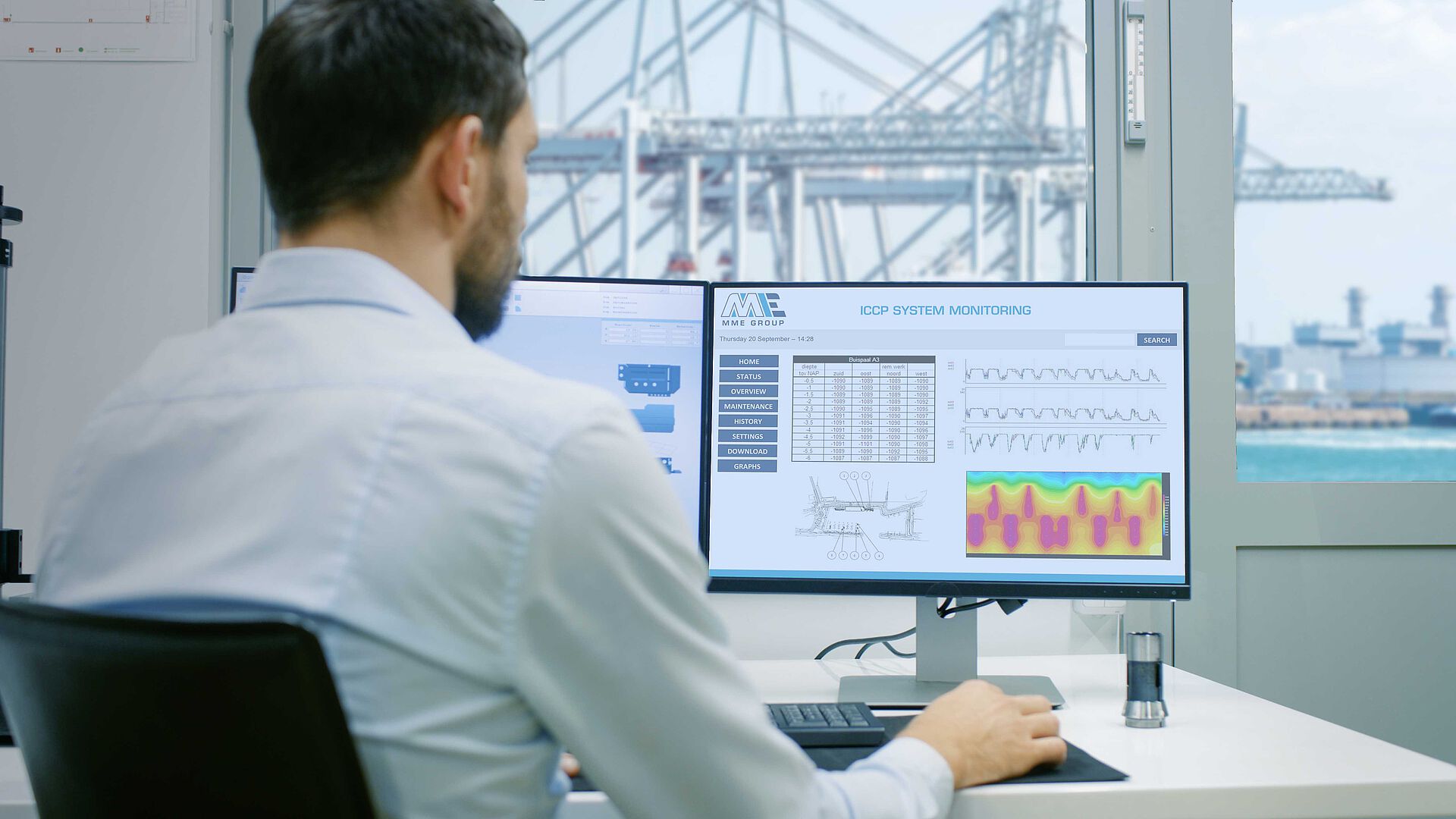

Impressed Current Cathodic Protection (ICCP) systems consist of one or more reference electrodes and several ICCP anodes which are all connected to a power unit. The reference cells measure the underwater electrical protection potential and based on this data, the power unit regulates the required output to the anodes. The controller has a self-testing and calibrating microprocessor with Modbus RS-485 interface. System fault alarm trough indication LEDs, LCD screen and Modbus protocol.
| General | |
| Article code | Power unit 150 A |
| Description | ICCP Systems |
| Mounting type | Wall mounted |
| Total weight (kg) | About 57 kg |
| Cabinet dimensions (mm) | 800x600x254 |
| Door hinge | Right side |
| Color | RAL 7035 |
| IP class | IP 54 |
| Output | 150A |
Impressed Current Cathodic Protection (ICCP) systems consist of one or more reference electrodes and several ICCP anodes which are all connected to a power unit. The reference cells measure the underwater electrical protection potential and based on this data, the power unit regulates the required output to the anodes. The controller has a self-testing and calibrating microprocessor with Modbus RS-485 interface. System fault alarm trough indication LEDs, LCD screen and Modbus protocol.
| General | |
| Article code | Power unit 80A |
| Description | ICCP Systems |
| Mounting type | Wall mounted |
| Total weight (kg) | About 24 kg |
| Cabinet dimensions (mm) | 500x400x250 |
| Door hinge | Right side |
| Color | RAL 7035 |
| IP class | IP 54 |
| Output | 80A |
Neem contact met ons op als u vragen hebt of een offerte wilt ontvangen
Objecten die met onze ICCP-systemen worden beschermd:
Zeegaande schepen (alle scheepstypen)
Offshoreplatforms
Offshore Windparken
Kademuren en damwanden in havens
Aanlegsteigers, dokken en brugpeilers
Sluizen en sluisdeuren
Pijpleidingen
Andere objecten die zich onder water bevinden
De kwaliteit en betrouwbaarheid van MME Group ICCP-systemen zijn onderbouwd door decennialange probleemloos functioneren van meer dan 1100 systemen die geïnstalleerd zijn aan boord van schepen en andere maritieme objecten over de hele wereld.
MME Group ICCP-systemen worden ontworpen en geproduceerd in onze productiefaciliteit in Ridderkerk.
Het aantal en de grootte van de anodes dat nodig is voor voldoende bescherming hangt af van de omvang van het schip of object dat beschermd moet worden. Indien nodig kunnen een specifiek anodeplan voor uw maken. Neem contact met ons op voor meer informatie.
Aluminium heeft een hoger potentiaalverschil met andere metalen dan zink. We adviseren aluminium anodes voor gebruik in zoet water omdat dat een hogere electrische weerstand heeft dan zout water. In zout water kunnen zowel aluminium als zink gebruikt worden.
Alle zink en aluminium MME Group opofferanodes worden geproduceerd in onze ISO 9001 gecertificeerde gieterij die 100% eigendom is van MME Group en zich bevindt in Faversham (VK). De meeste typen anodes houden wij op voorraad in onze loods in de regio Rotterdam waardoor we binnen enkele dagen op praktisch iedere locatie in Europa kunnen leveren.